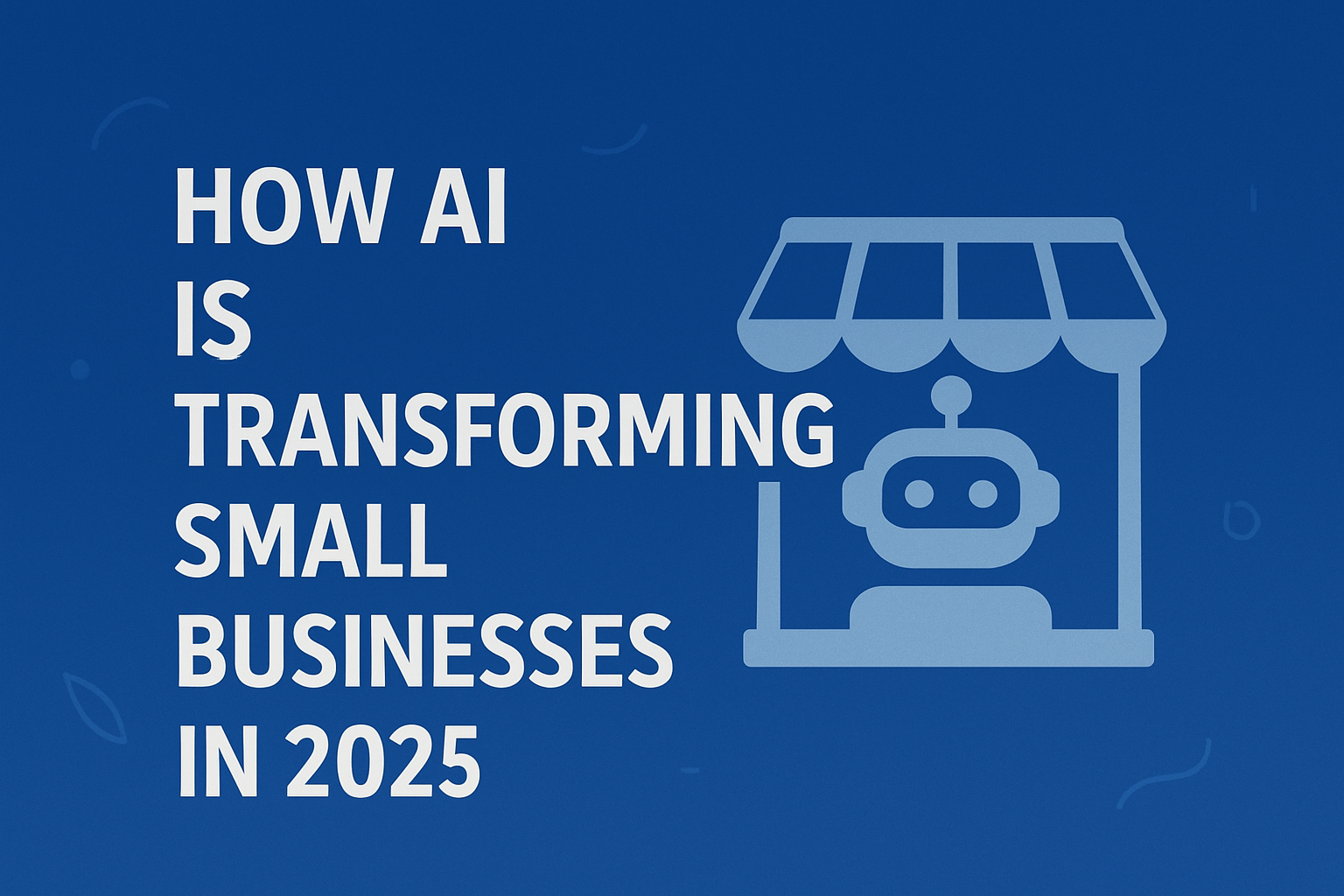Introduction
Artificial Intelligence (AI) is no longer just for large enterprises. In 2025, small businesses are increasingly leveraging AI to streamline operations, personalize customer experiences, and gain a competitive edge. Affordable and user-friendly AI platforms have democratized access, enabling small businesses to compete with global brands.
This article dives into the top 10 ways AI is transforming small businesses, actionable tips for implementation, and predictions for the near future.
1. Automating Daily Operations
Operational efficiency is key for small businesses. AI can automate repetitive tasks, reduce errors, and free employees to focus on high-value work.
Examples of Daily Automation
- Accounting: AI tools like QuickBooks automate invoices, reconciliations, and payroll.
- Inventory Management: Zoho Inventory predicts stock shortages and reorders products automatically.
- Scheduling: Calendly AI optimizes appointments and sends automated reminders.
Impact on Productivity
- Reduction of up to 30% in manual administrative tasks.
- Faster response time to customer queries.
- Cost savings of 15–25% on operational overhead.
2. AI-Driven Marketing
AI enables hyper-targeted marketing campaigns, predictive content suggestions, and real-time campaign optimization.
Practical Use Cases
- Email campaign optimization with Mailchimp.
- Automated social media posts using HubSpot AI.
- Dynamic ad targeting on platforms like Facebook Ads AI.
Statistics & ROI
- Small businesses using AI marketing report a 20–35% increase in conversion rates.
- Cost per lead reduced by an average of 18%.
3. Personalized Customer Experience
AI analyzes customer data to provide personalized recommendations, product suggestions, and emails, improving loyalty and repeat purchases.
Key Tools
- Salesforce Einstein – Predictive insights for customer preferences.
- Freshworks – Tailored communication and ticket management.
- Drift – Website personalization using AI chatbots.
Benefits
- Increased customer retention by 25%.
- Higher engagement and repeat purchase rates.
4. Predictive Analytics for Smarter Decisions
AI predictive analytics help small businesses forecast sales, optimize inventory, and make informed strategic decisions.
Applications
- Sales forecasting using Tableau or Power BI.
- Customer behavior prediction with Google Analytics 4.
- Demand planning and supply chain optimization.
Impact
- Reduction in overstock and understock by up to 30%.
- Improved decision-making speed and accuracy.
5. AI Chatbots for Customer Support
AI chatbots provide instant support, automate FAQ responses, and assist in sales, enhancing customer satisfaction while reducing costs.
Popular Platforms
- Intercom – Live chat and automation workflows.
- Drift – Conversational marketing and sales chatbots.
- ManyChat – Messenger and social media automation.
Benefits
- Response time reduced by 50–70%.
- Customer satisfaction improved by 20%.
6. Affordable AI Tools for Small Businesses
Modern AI tools are accessible and cost-effective, removing barriers for small businesses to adopt AI solutions.
Examples
- Trello AI – Project management with automated task suggestions.
- Notion AI – AI-powered note-taking, content generation, and knowledge management.
- Zoho CRM AI – Sales automation, lead scoring, and customer insights.
7. Enhancing Product Development
AI helps small businesses innovate by analyzing trends, creating designs, and predicting customer preferences.
Tools & Examples
- Figma AI – AI-assisted UI/UX design suggestions.
- Adobe Firefly – Visual content creation for marketing and products.
- Jasper AI – Copywriting, product descriptions, and marketing content.
8. E-Commerce Optimization
AI improves online sales through personalized recommendations, dynamic pricing, and fraud detection.
- Shopify AI – Product recommendation engines.
- Klaviyo – Customer behavior-based email campaigns.
- BigCommerce AI – Store layout optimization and fraud detection.
9. AI-Powered Cybersecurity
AI strengthens small business cybersecurity by identifying threats, monitoring networks, and preventing breaches.
- Darktrace – Real-time anomaly detection.
- Trend Micro – Threat intelligence and automated response.
- CrowdStrike – Endpoint protection and AI-driven threat hunting.
10. Leveling the Competitive Playing Field
AI provides small businesses access to advanced tools and insights, enabling them to compete globally without heavy investment.
- Automation reduces operational costs.
- Predictive analytics improves business decisions.
- Personalized customer engagement increases revenue and loyalty.
Future Trends of AI in Small Business
- Voice commerce integration for hands-free shopping.
- Hyper-personalized marketing using AI-generated customer profiles.
- AI-driven logistics and inventory automation.
- Integration of AR/VR for enhanced customer experiences.
Final Thoughts
AI is no longer optional for small businesses. Adopting AI solutions allows entrepreneurs to streamline operations, improve customer experience, and compete at a global scale. Early adoption, consistent learning, and integration into daily workflows will define successful small businesses in 2025 and beyond.
Related Posts
- How AI Is Changing Our World: A Deep Dive into the Future
- Top 10 Programming Languages in 2025
- How AI Will Replace and Create Jobs by 2030
Frequently Asked Questions (FAQs)
How can small businesses start using AI in 2025?
Start with AI tools for marketing, CRM, customer support, and analytics. Test small, scale gradually, and monitor ROI.
Is AI expensive for small businesses?
No. Many platforms are affordable, user-friendly, and scalable for small businesses.
Can AI help small businesses compete with larger companies?
Yes. AI levels the playing field by providing automation, insights, and personalization that were once exclusive to large corporations.
